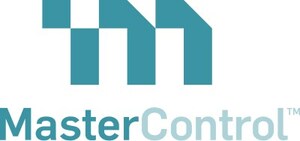
Findings also indicate what brands can do to reduce liability and get recalled products out of homes
SALT LAKE CITY, Sept. 24, 2024 /PRNewswire/ -- MasterControl, a leading provider of quality management and manufacturing software for life sciences and regulated industries, today released a new report showing that 36% of Americans admit they would continue to use products even after a recall. The trend proves generational. For instance, Millennials (45%) and Gen Z (59%) are twice as likely to continue to use at least one kind of recalled product compared to Boomers (18%) and Gen X (23%).
"Companies hoping customers will take proactive steps to guard against recalled products aren't taking the realities of consumer behavior into consideration. If products don't get pulled from the market, companies are left open to legal and reputational risk," said Jon Beckstrand, MasterControl CEO. "Brands need to spend more time listening to what consumers are willing to do when recalls occur so that they can ensure products are out of consumers' hands and damage is minimized."
Consumer Apathy Dominates
While 92% of consumers say they would take some type of action to mitigate the financial or physical harm from a recalled product – like asking for a refund or talking to a medical provider – many will then still continue to use the faulty products.
Among generations, Gen Z and Millennials are the least likely to take action. For example:
- For recalled products that pose a health or safety risk, Millennials (18%) and Gen Z (17%) are three times more likely to continue to use them than Boomers (3%) and Gen X (6%).
- 21% of Gen Z agreed they are likely to use recalled vaccines compared to 3% of Boomers, 11% of Gen X, and 14% of Millennials.
- 23% of Gen Z agreed they are likely to use recalled baby formula compared to 2% of Boomers, 5% of Gen X, and 16% of Millennials.
The report also found that Americans want what they consume to be of high standard. In fact, three-quarters (77%) question the quality or safety of medical products, but they do little to keep harmful items from entering their bodies or homes, which can be a huge liability to manufacturers. When it comes to prevention, more than two-thirds (68%) don't proactively check for recalls and only 47% know how to properly report a safety concern or defect in a medical product.
But consumer apathy doesn't necessarily equate to brand loyalty. When recalls occur, many consumers abandon future interactions with brands, refusing to purchase more products from them or telling personal networks to avoid the brand.
- 56% of consumers would not purchase a product that was previously recalled
- 42% have stopped using a product category entirely following a recall
- 51% of consumers would encourage friends or family not to buy products from a brand after learning of a recall from that company
What Brands Can Do
Respondents in the study offer clues about how brands can have more effective recalls—what channels they get information from, how they prefer to receive information, what it would take for brands to get them to act on recalled products, and more. Nearly 40% of respondents feel there needs to be enhanced communication about recalls.
- Current channels: The most effective channel brands are currently using to inform customers about recalls is traditional news media (42%). Another 30% of respondents hear about recalls from social media and 15% have heard about recalls from government sources like the FDA.
- Preferred channels: However, 42% of Americans prefer to get information about recalls from healthcare providers, 38% prefer to hear about recalls from the pharmacy or store where the product was purchased, and 37% prefer to hear about recalls from traditional news media.
- Recall simplicity: The majority of consumers (53%) want brands to make the return or exchange process easier during recalls. A third (37%) need increased transparency about product safety measures.
- Recall reimbursement and costs: 72% of consumers wish brands would offer a full refund when their product is recalled. Brands should also consider paying people to return products. For Americans who would, $62 is the average compensation needed in order for them to follow through with returning a recalled product. Half want the product replaced for free and a quarter (27%) would like discounts on future purchases.
"Preventing recalls is by far the best way for brands to build trust and reduce costs. However, if mistakes make it to market, the rising generation is looking for companies to engage and communicate with them in new ways," Beckstrand said. "The smartest leaders will dive into these expectations and adjust processes to not only increase safety in our communities but repair brand reputations."
To read the full "2024 MasterControl Recall Report", visit: https://www.mastercontrol.com/resource-center/documents/life-sciences-quality-management-product-recalls-research/
Methodology:
MasterControl conducted this research using an online survey prepared by Method Research and distributed by RepData among n=1,008 adult U.S. consumers (age 18+). The sample was split between 4 equal-sized age groups by generation of respondents: Gen Z, Millennial, Gen X, and Boomers. Data was collected from May 13 to May 17, 2024.
About MasterControl
MasterControl is a leading provider of software solutions that enable life sciences and other regulated companies to deliver life-changing products to more people sooner. The company's innovative quality and manufacturing software solutions streamline and automate critical processes, ensuring compliance with industry regulations and facilitating efficient product development and delivery.
For more information about MasterControl and their innovative manufacturing and quality management software solutions, please visit mastercontrol.com.
SOURCE MasterControl






Share this article